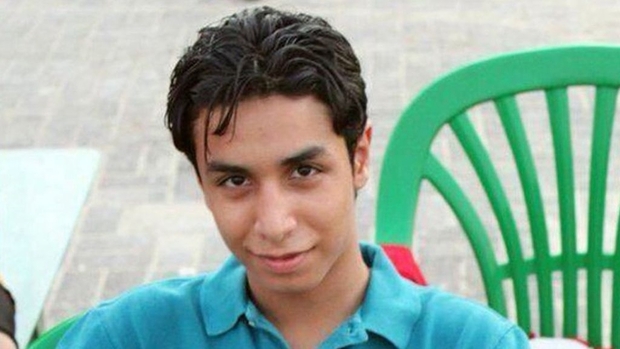Throughout October 2018, United Nations (UN) Special Procedures sent three separate joint communications to the Kingdom of Saudi Arabia expressing concerns over a myriad of human rights violations, ranging from the targeting of human rights defenders to extrajudicial executions for protest-related offenses committed by minors to arbitrary arrests and detentions. This blog series highlights these joint communications and the Kingdom’s response, if it provided one.
Find our previous blog on the communication sent to Saudi Arabia on women’s rights defenders here.
On 11 October, UN Special Procedures sent an Urgent Appeal (UA SAU 13/2018) to the Kingdom of Saudi Arabia from the Special Rapporteur on extrajudicial, summary or arbitrary executions; the Special Rapporteur on the promotion and protection of the right to freedom of opinion and expression; the Special Rapporteur on the rights to freedom of peaceful assembly and of association; and the Special Rapporteur on torture and other cruel, inhuman or degrading treatment or punishment.
The communication aimed to bring to the attention of the Saudi government the cases of six individuals who are at risk of imminent execution for exercising their fundamental human rights, and who were under the age of 18 at the time of their arrest. All six individuals, who have been the subjects of several previous communications (Cases SAU 7/2017, 2/2016, 7/2016, 8/2015, and 6/2015), were arrested and sentenced to death between 2014 and 2017. Ali al-Nimr, Dawood alMarhoon, Abdullah al-Zaher, Mujtaba al-Sweikat, Salman Qureish and Abdulkarim al-Hawaj were all minors under international human rights law at the time of arrest and faced torture and ill-treatment. They were denied a viable complaint mechanism and access to legal counsel, and remain in imminent danger of execution.
Dawood al-Marhoon, Salman Qureish, and Ali al-Nimr were arrested as a result of their participation in the Arab Spring protests, highlighting Saudi Arabia’s criminalization of the exercise of fundamental rights. Furthermore, Ali al-Nimr and Abdullah al-Zaher (and likely the others listed in the communications) were denied timely legal aid, and when legal aid was provided the lawyers were denied adequate access to case materials, in violation of the aforementioned six individuals’ due process and fair trial rights. All six individuals mentioned in the communication were tortured in order to coerce a confession, and in some cases were prosecuted using those confessions, which under international law should have been inadmissible.
Special Procedures drew attention to the Saudi government’s inconsistencies in compliance with international human rights law by citing the various international instruments and standards the government had violated, specifically the Universal Declaration of Human Rights (UDHR), the International Covenant on Civil and Political Rights (ICCPR), and the United Nations Convention on the Right of the Child (CRC) and the Convention Against Torture and other Cruel, Inhuman, or Degrading Treatment or Punishment (CAT). The communications expressed that exercising the rights to freedom of expression and assembly do not constitute “most serious crimes” as required by international law for death sentences. Under the aforementioned laws, the imposition of the death penalty on persons for offences committed while under 18 years old is also prohibited. Mandates also cited the Saudi government’s public acknowledgement of its understanding of these international obligations at the 73rd Session of the United Nations Committee on the Rights of the Child. Despite the government’s insistence that they “never sentence [a child] to capital punishment” and that the “age of liability is 18,” the six individuals mentioned in the communication have all been sentenced to death for offences that they allegedly committed under the age of 18, making their possible executions arbitrary deprivations of life.
Special Procedures called attention to the Saudi government’s concerning pattern of arbitrary detention, forcible disappearance, torture or ill-treatment, and various violations of the fair trial rights of minors. It especially emphasised the need for urgent action on behalf of Ali al-Nimr, Dawood al-Marhoon, Abdullah al-Zaher, Mujtaba al-Sweikat, Salman Qureish and Abdulkarim al-Hawaj, who remain at imminent risk of execution. The communication concluded with requests for comment and detailed information from the government concerning the legal basis for the continued detentions of the six minors, their whereabouts and any dates set for executions, and any measures in place to investigate allegations. Special Procedures also urged the government to halt all rights violations of the nature delineated in the communication and to take necessary steps to prevent their reoccurrence.
The Saudi government responded to the communication with a statement that they had already replied to the cases of each of the six individuals, except Salman Qureish. Cause for serious concern remains as previous replies from the Saudi government did not provide or reflect redress for the victims. The Saudi government has ignored numerous Urgent Appeals in the past and habitually refuses to cooperate with UN Special Procedures and its mechanisms. As Saudi Arabia continues to fail to fulfill its duties as a member of the Human Rights Council and commit outrageous human rights abuses, the safety of these six minors, and many others persecuted as part of the widespread issue, remains at risk.
Serena Dineshkumar is an Advocacy Intern with ADHRB





